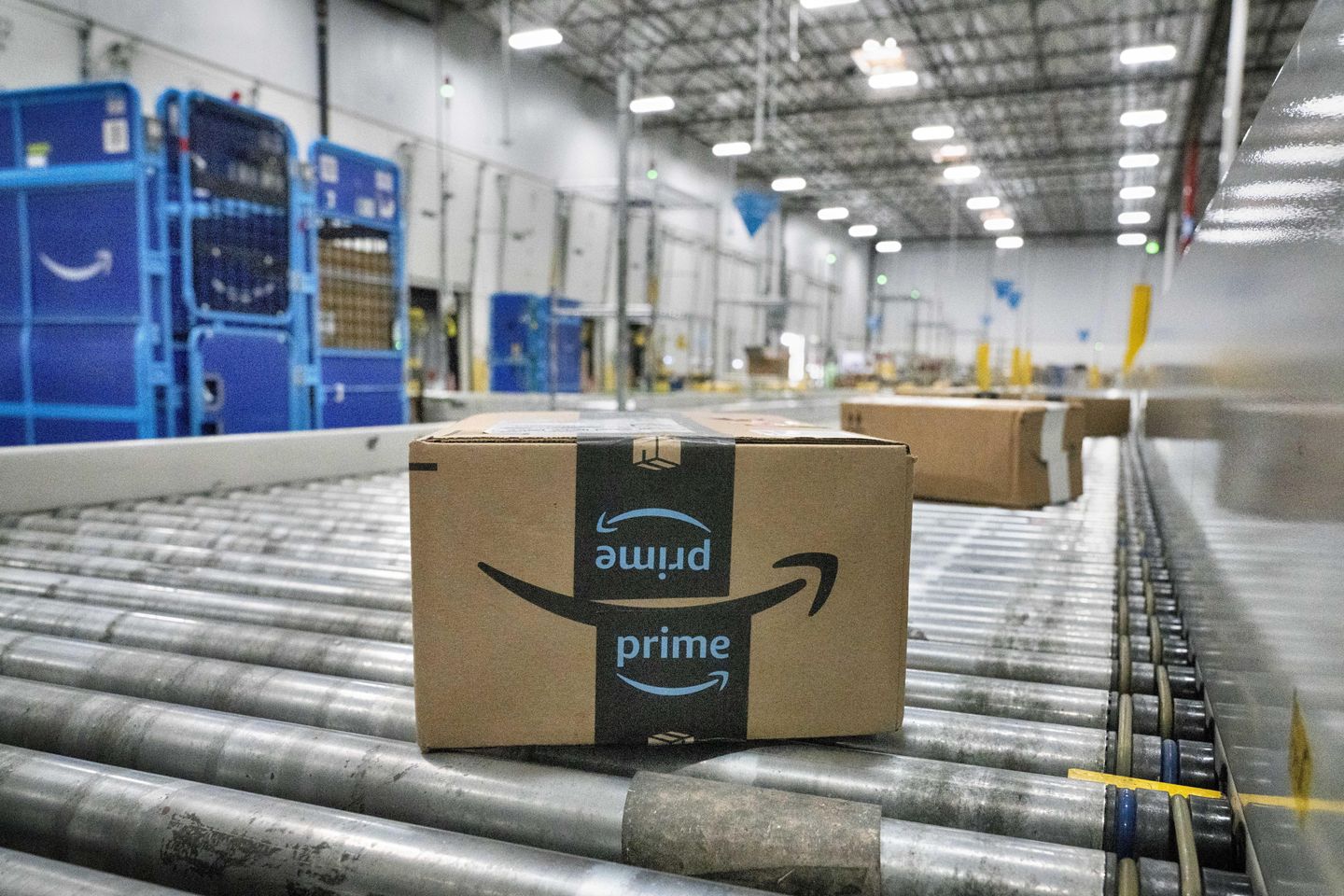
Online retailer Amazon says the low-cost arm of its web store considered putting tariff costs next to its prices, but the plan was not authorized and is “not going to happen.”
The retail behemoth said it would not list tariff pricing hours after the White House slammed the reported plan as a “hostile and political act.”
“The team that runs our ultra-low-cost Amazon Haul store considered the idea of listing import charges on certain products,” Amazon spokesman Tim Doyle said in a statement. “This was never approved and is not going to happen.”
The Haul website offers discounted items and competes with retailers such as Temu, which relies on cheap goods from China and recently started listing tariff costs.
Tuesday’s short-lived dustup stemmed from a Punchbowl News scoop early Tuesday that said Amazon would start listing the price before and after the tariff difference.
The Trump administration was outraged.
“This is a hostile and political act by Amazon. Why didn’t Amazon do this when the Biden administration hiked inflation to the highest level in 40 years?” White House press secretary Karoline Leavitt said.
“I would also add that it’s not a surprise because, Reuters recently wrote, Amazon has partnered with a Chinese propaganda arm,” Ms. Leavitt told reporters at a briefing with Treasury Secretary Scott Bessent. “So this is another reason why Americans should buy American.”
Amazon founder Jeff Bezos and Mr. Trump haven’t always had an easy relationship, but the duo seemed to be getting along since the return of the president for a second term.
Mr. Bezos has attended a dinner at Mar-a-Lago with Elon Musk and was seen at the U.S. Capitol for Mr. Trump’s inauguration in January. He also contributed to the Trump inauguration fund.
The e-commerce king, who also owns The Washington Post, notably had his paper not endorse a candidate in the November election, after years of endorsing Democrats.
Some online commenters defended the tariff pricing idea, saying it would bring transparency around the tariffs, which are a tax or duty paid by importers on the goods they bring in from foreign markets.
Mr. Trump is using tariffs to force companies to return to America or keep their operations in the U.S., employ American workers and create revenue to fund domestic programs.
Foreign countries don’t pay the tariffs directly to the U.S. Treasury. In many cases, U.S. companies will pay the levies, and they might pass on at least some of the cost to consumers through higher prices, putting retailers in a tough spot.
“It’s another reason why we are onshoring critical supply chains here at home, to shore up our own critical supply chain and boost our manufacturing,” Ms. Leavitt said.
Amazon sellers have hiked prices on nearly 1,000 goods since Mr. Trump announced his tariffs earlier this month. The average price jump has reportedly been around 30%.
Mr. Bessent said he does not think Mr. Trump’s tariff plan and trade war with China will cause supply shocks at U.S. stores.
“I wouldn’t think that we would have supply-chain shocks, and I think retailers have managed their inventory in front of this,” Mr. Bessent said.
The secretary said he based that belief on direct conversations with companies.
He said retailers “know that President Trump is committed to fair trade and have planned accordingly.”












